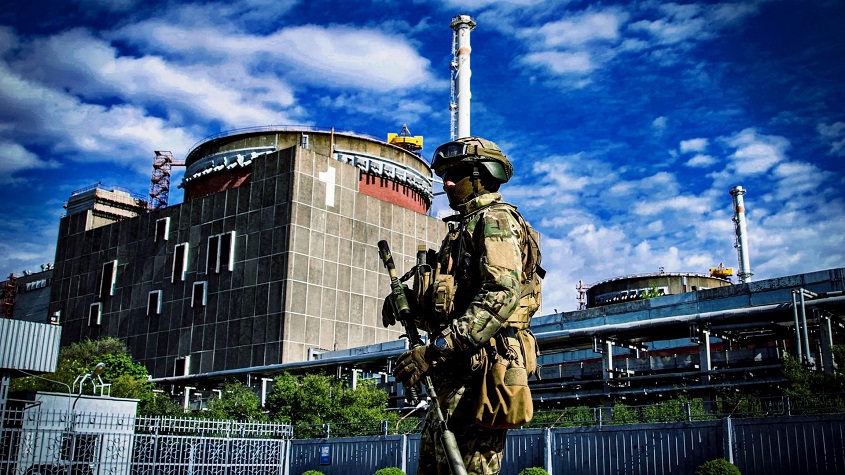Ukraine on Friday accused Russia of strikes near a nuclear reactor at the Zaporizhizhia power plant in the south, which has been under Russian occupation since the start of the war in late February.
The accusation was later denied by Moscow.
“Three strikes were reported on Friday evening near one of the nuclear reactors,” the Ukrainian state company, Energoatom, which manages the country’s nuclear power plants, announced on Telegram. A high voltage line was damaged in this attack, triggering the shutdown of one of the reactors of the power station, the largest in Europe.
“There are risks of hydrogen leakage and spraying of radioactive substances. The danger of fire is high,” according to Energoatom, which did not immediately report any casualties. It said officials from the Russian company, Rosatom, “hastily left the site before the attack”.
The Ukrainian Ministry of Foreign Affairs, for its part, “strongly condemned the actions of the occupying troops at the Zaporizhizhia power plant” on Friday.
“The possible consequences of a strike on an operating reactor are equivalent to the use of an atomic bomb,” the ministry wrote in a statement, calling on the international community to take “immediate measures” to force Russia out of the plant and to “transfer it under the control of Ukraine in the interest of the security of the entire world.”
For its part, Russia has denied that it was responsible for the attack, accusing in turn the government of Ukrainian President Volodymyr Zelensky of "nuclear terrorism."
"Ukrainian armed formations carried out three artillery strikes against the territory of the Zaporizhizhia nuclear power plant and the city of Energodar," the Russian army said in a statement, calling on "international organizations to condemn the actions of the Zelensky regime which carries out acts of nuclear terrorism."
The International Atomic Energy Agency (IAEA) said on Tuesday that the situation was “volatile” at the power plant and becoming increasingly dangerous by the day.
At the end of July, Ukraine accused Russia of storing heavy weapons and ammunition on the site of the nuclear power plant. When the plant was taken over in early March, the Russian army opened fire on buildings on the site, already raising the risk of a major nuclear accident.

